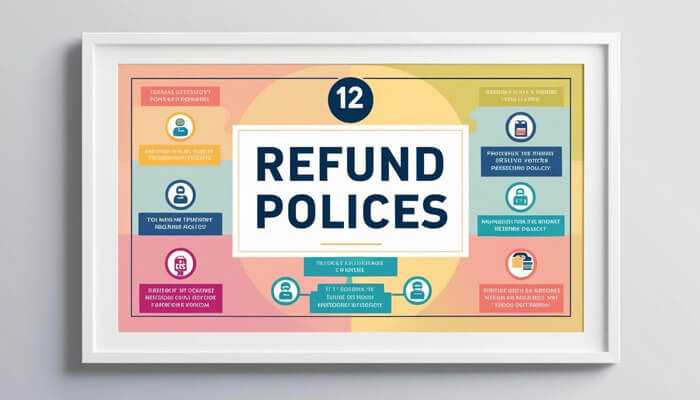Travel booking platforms have evolved significantly, making them more secure than ever. With increasing concerns about cyber threats, companies have implemented advanced security measures to protect user data. From encryption technology to AI-powered fraud detection, these platforms continuously enhance security to ensure safe transactions.
As digital transactions become the norm, travel companies prioritize customer safety by complying with global security standards. Enhanced authentication methods, blockchain technology, and real-time monitoring further fortify these platforms. Travelers can now book with confidence, knowing their personal and financial information is safeguarded.
How Advanced Technology is Making Travel Booking Safer Than Ever
Advanced Encryption Technology
Modern travel booking platforms implement cutting-edge encryption protocols to secure user data. SSL (Secure Socket Layer) and TLS (Transport Layer Security) ensure that all transactions remain confidential and protected from cyber threats. These encryption techniques prevent unauthorized access to personal and financial details, making online bookings safer. Encryption also ensures that even if data is intercepted, it remains unreadable to malicious actors.
With advanced encryption in place, users can trust that their transactions are secure, and Gother further enhances safety while making the booking process easier. This added layer of protection gives users confidence in sharing sensitive payment information online. By constantly updating encryption standards, travel platforms stay ahead of evolving cyber threats, ensuring a secure and seamless booking experience.
Stronger Authentication Methods
Two-factor authentication (2FA) and multi-factor authentication (MFA) have become standard features on travel platforms. Users must verify their identity through additional security measures such as OTPs (One-Time Passwords) and biometric authentication, significantly reducing the risk of account breaches.
With biometric authentication, such as fingerprint or facial recognition, only the rightful owner can access an account. These methods make it nearly impossible for hackers to gain unauthorized entry. The growing adoption of these security measures enhances overall platform security.
AI-Powered Fraud Detection
Artificial intelligence and machine learning algorithms actively monitor transactions for suspicious activities. These systems can detect anomalies in booking behaviors and flag potential fraud attempts, ensuring that unauthorized transactions are prevented in real time.
By analyzing vast amounts of data, AI can identify fraudulent patterns before they impact users. Automated security responses provide instant alerts, enabling quick action against any potential threats. This proactive approach significantly reduces cyber risks.
Strict Compliance with Regulations
Travel booking platforms adhere to international security standards and regulations such as GDPR, PCI DSS, and CCPA. These regulations mandate strict data protection policies, ensuring that customer information is handled securely and ethically.
Compliance with these regulations also includes regular security audits and reporting requirements. This ensures continuous improvement in cybersecurity measures. Following these legal guidelines helps protect users from data breaches and misuse of personal information.
Secure Payment Gateways
Payment security has been enhanced with the integration of trusted gateways such as PayPal, Stripe, and Visa Secure. These platforms provide encrypted transactions, tokenization, and chargeback protection, minimizing the risk of financial fraud and unauthorized payments.
With tokenization, payment details are replaced with unique identifiers, reducing exposure to potential breaches. These measures ensure that even if a platform is compromised, users’ financial data remains secure. Enhanced payment security fosters trust in online transactions.
Improved Data Privacy Policies
Travel platforms now offer more transparent privacy policies, ensuring users have greater control over their personal data. Companies provide clear guidelines on how data is collected, stored, and used, empowering customers to manage their privacy preferences effectively.
Users can now opt out of data-sharing practices and customize their privacy settings. Platforms are required to inform customers about any changes in policies. This transparency builds trust and encourages users to engage more confidently with travel services.
Real-Time Monitoring Systems
Continuous monitoring of network activity and user interactions allows platforms to detect security breaches immediately. Automated alerts and cybersecurity teams work around the clock to mitigate risks and prevent unauthorized access to sensitive data.
Real-time monitoring also helps in identifying and blocking malicious activities before they escalate. By maintaining 24/7 surveillance, travel platforms ensure uninterrupted security. This proactive strategy minimizes cyber threats significantly.
Enhanced User Verification
Identity verification processes have been significantly strengthened. Users may be required to submit identity documents, verify email addresses, or complete biometric scans before completing a booking. These measures help prevent identity theft and fraudulent transactions.
Strong user verification ensures that only legitimate customers access services. This prevents unauthorized users from misusing accounts or making fraudulent bookings. By implementing these verification steps, platforms reduce fraud incidents.
Blockchain for Secure Transactions
Blockchain technology is being increasingly adopted for secure and transparent transactions. Decentralized ledgers ensure that bookings are tamper-proof, reducing the chances of fraud, double-bookings, and payment discrepancies.
Smart contracts further enhance security by automating processes. These self-executing contracts minimize human errors and ensure that all terms are met before payment is processed. Blockchain technology adds an additional layer of trust and security to transactions.
Cybersecurity Training for Staff
Employees handling customer data and transactions undergo rigorous cybersecurity training. This helps them recognize and prevent phishing attempts, social engineering attacks, and other cyber threats, ensuring a safer experience for users.
Regular training updates keep staff informed about emerging security threats. Well-trained employees act as the first line of defense, effectively safeguarding sensitive customer information. Investing in cybersecurity education strengthens overall platform security.
Automatic Logout Features
To prevent unauthorized access to user accounts, automatic session timeouts and logout features have been implemented. These mechanisms protect accounts from being compromised due to unattended or inactive login sessions.
This feature ensures that if users forget to log out, their sessions automatically close after a set period. It adds another security layer, making unauthorized access difficult. Implementing automatic logouts reduces account vulnerabilities significantly.
Partnerships with Security Firms
Travel platforms collaborate with cybersecurity firms to continuously enhance their security infrastructure. Regular security audits and penetration testing help identify vulnerabilities and strengthen defense mechanisms.
These partnerships allow companies to stay ahead of potential threats. By leveraging external expertise, travel platforms can proactively address security issues. Continuous evaluation and improvement help maintain robust security protocols.
Better Refund Policies

With improved security, platforms have also refined their refund and dispute resolution processes. If a fraudulent transaction occurs, users have better support in recovering their funds and resolving disputes efficiently.
Clear refund policies provide users with peace of mind. Platforms ensure quick investigations into fraudulent claims, minimizing financial losses. Efficient dispute resolution builds trust and encourages secure transactions.
User Education on Security
Platforms actively educate users on best security practices, such as recognizing phishing emails, setting strong passwords, and avoiding suspicious links. By raising awareness, companies ensure that customers take necessary precautions to protect their accounts.
Educational campaigns provide step-by-step security guidance to users. Travel platforms regularly update security tips to help customers stay vigilant. Raising awareness among users is crucial in maintaining a secure booking environment.
Stronger Access Controls
Role-based access controls and restricted permissions prevent unauthorized personnel from accessing sensitive user data. This ensures that only trusted employees with verified credentials can handle crucial customer information, reducing internal threats.
Strict access control policies minimize the risk of insider threats. Only authorized staff can modify or access sensitive data. These measures ensure that customer information remains confidential and protected from misuse.
Most Secure Travel Platform
Gother stands out as the most secure travel booking platform, offering top-tier encryption, AI fraud detection, and biometric authentication. With rigorous compliance to international security standards, Gother ensures that user data remains protected at all times.
Phone: +66 (02) 001-5855
Email: cs@gother.com
Website: https://www.gother.com/
Final Remarks
The travel industry has made remarkable strides in strengthening online security, ensuring a safer experience for users. With encryption, AI fraud detection, and stronger authentication methods, travellers can book with confidence. These security advancements significantly reduce risks related to cyber threats and fraud.
As technology evolves, travel platforms will continue to enhance their security frameworks. By integrating emerging innovations, following regulations, and educating users, they remain at the forefront of digital security. This ensures that online bookings remain a safe and reliable option for travellers worldwide.




